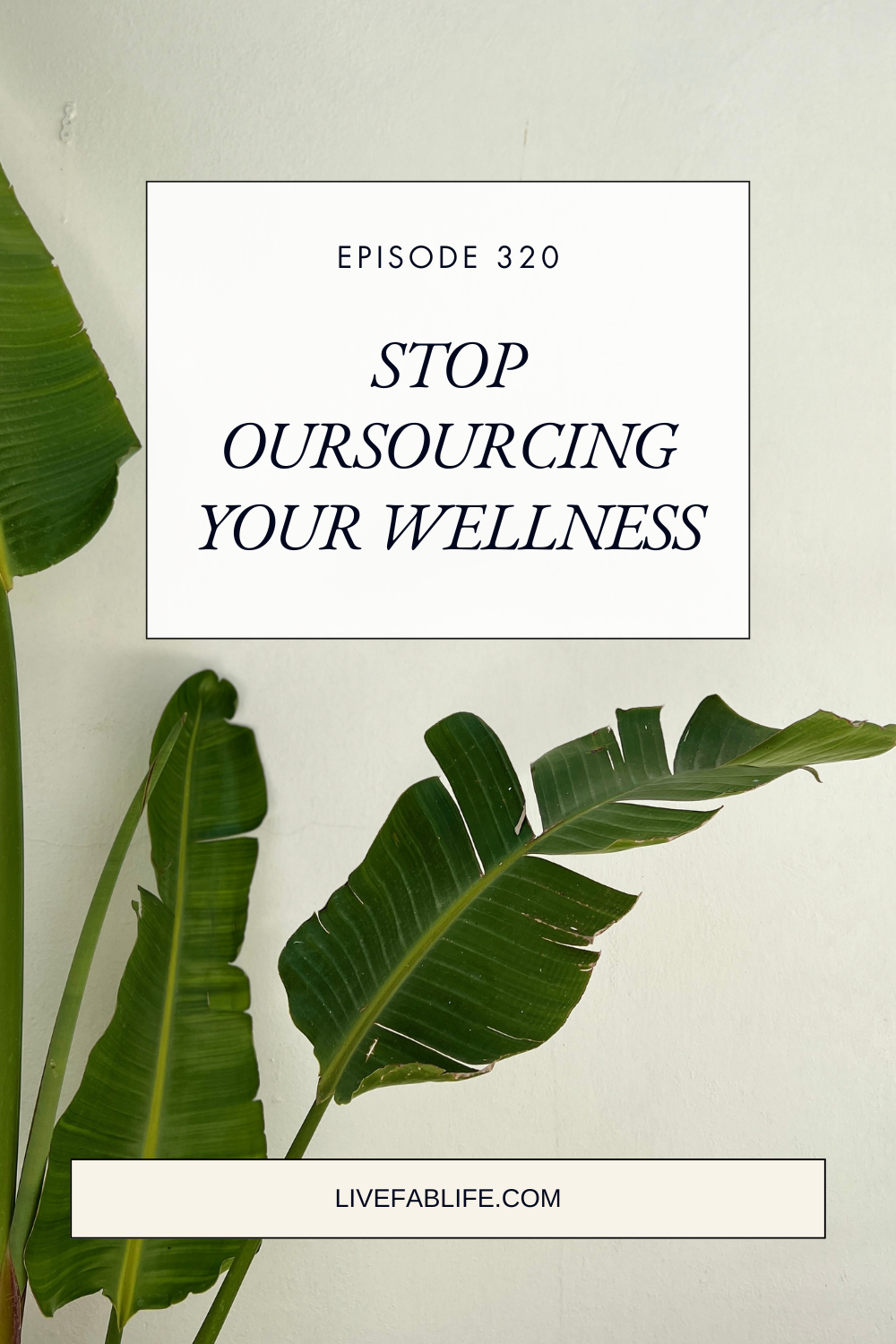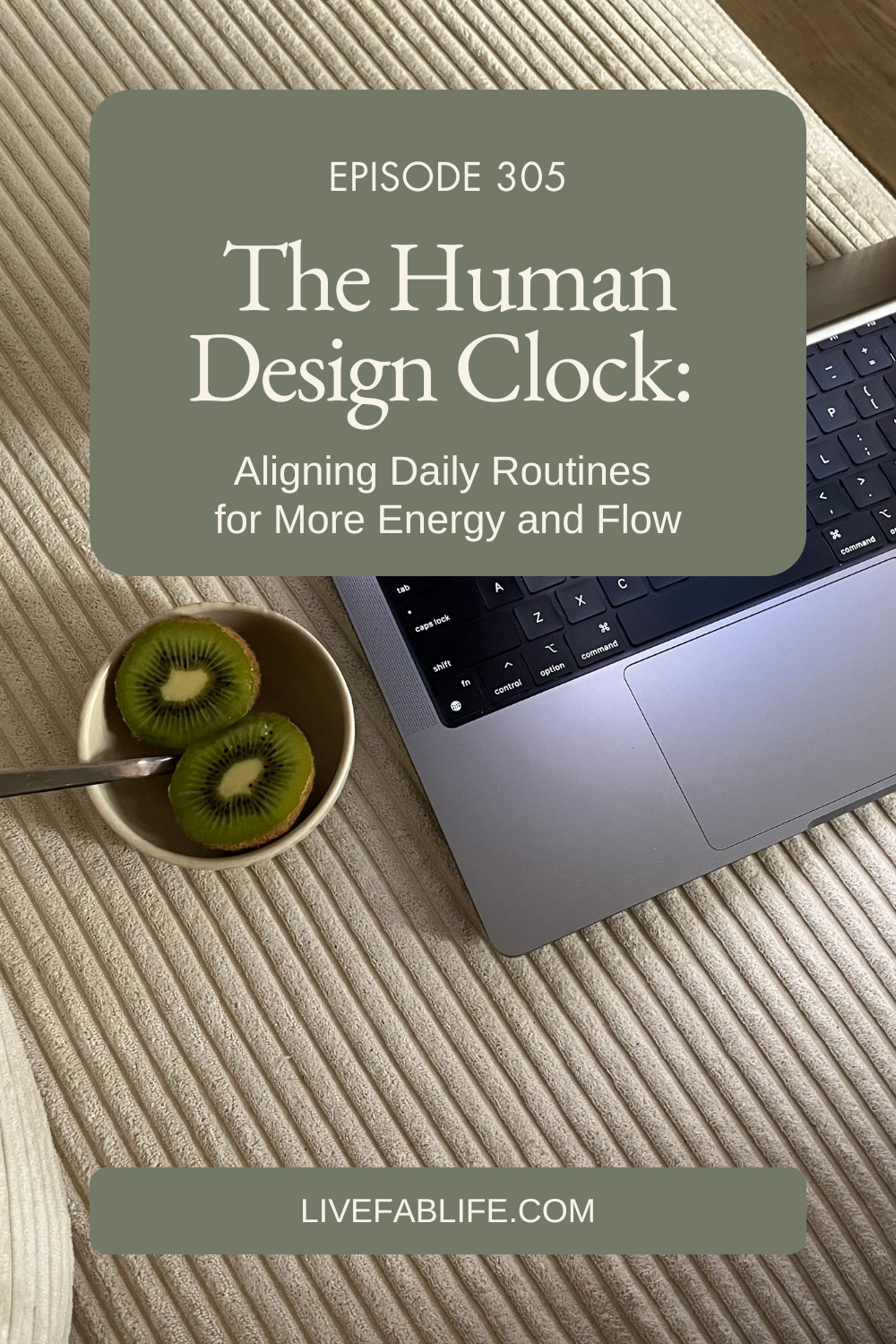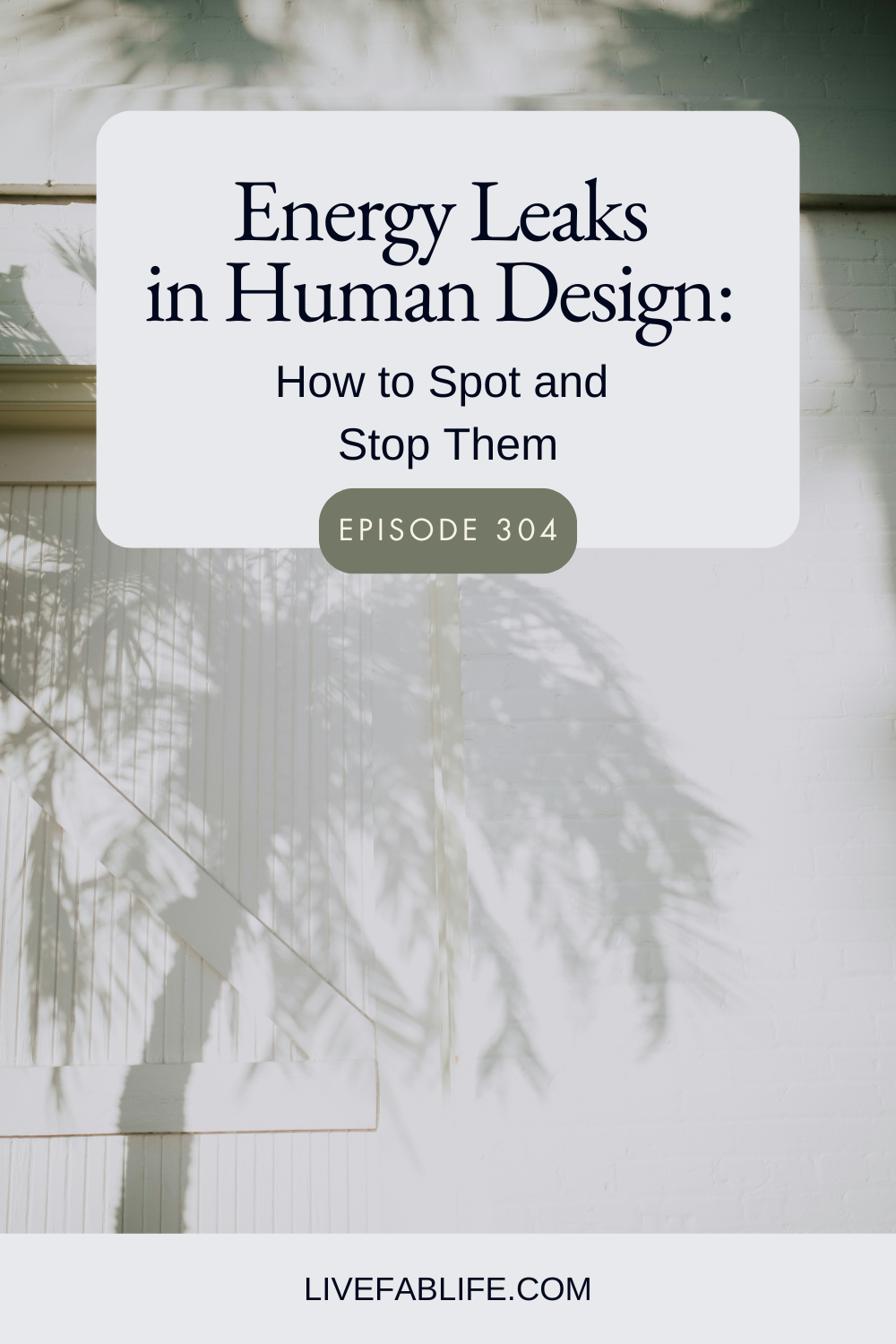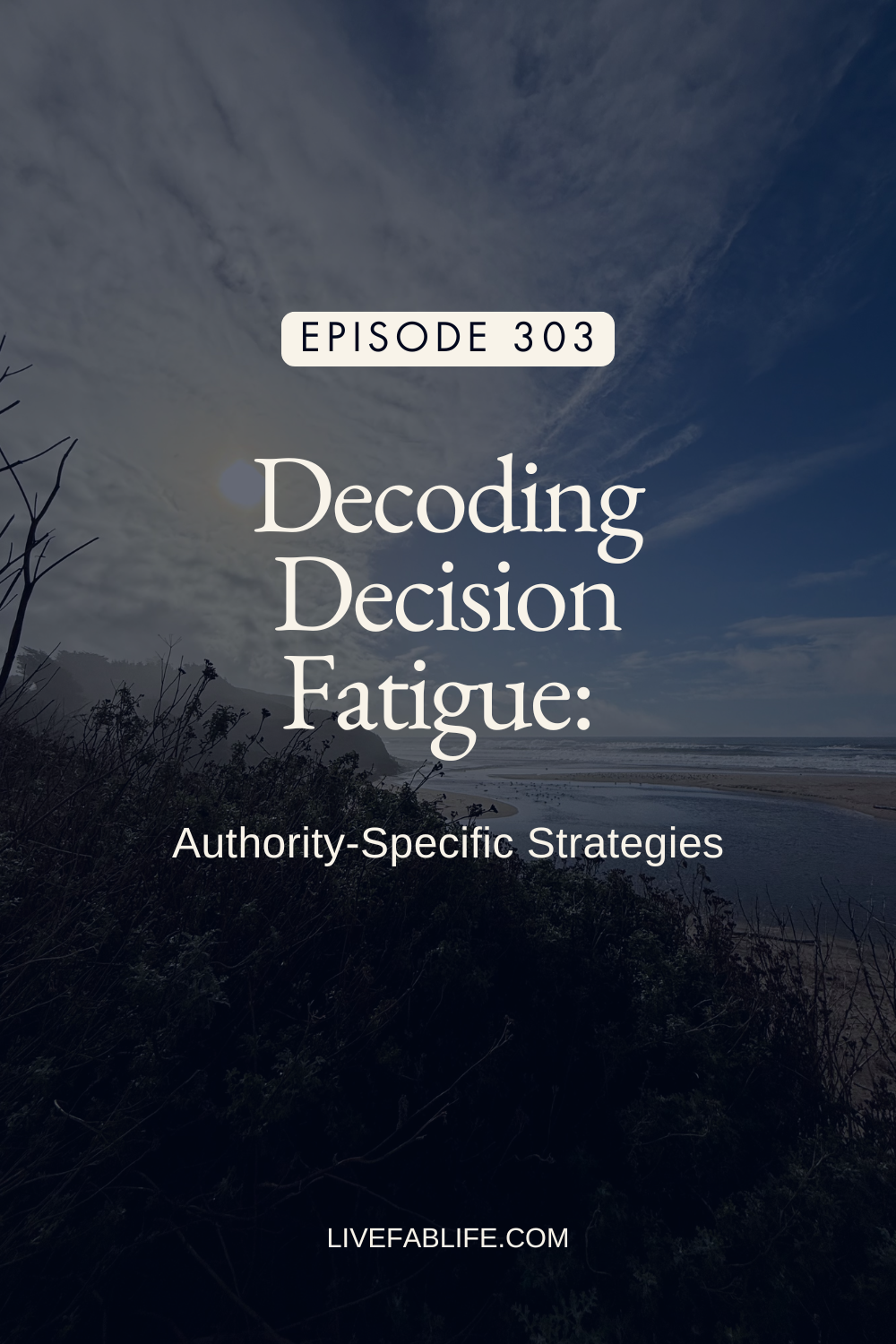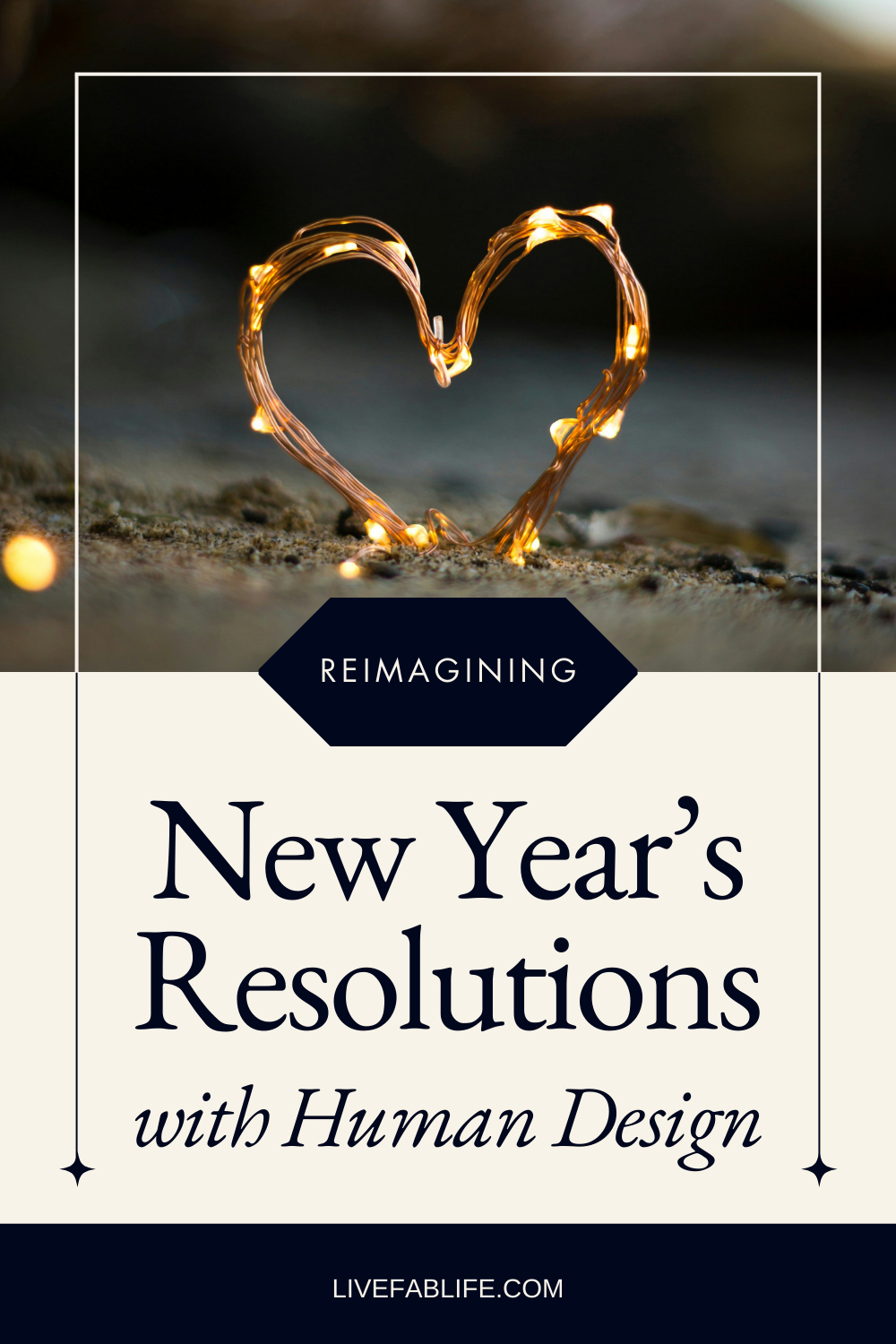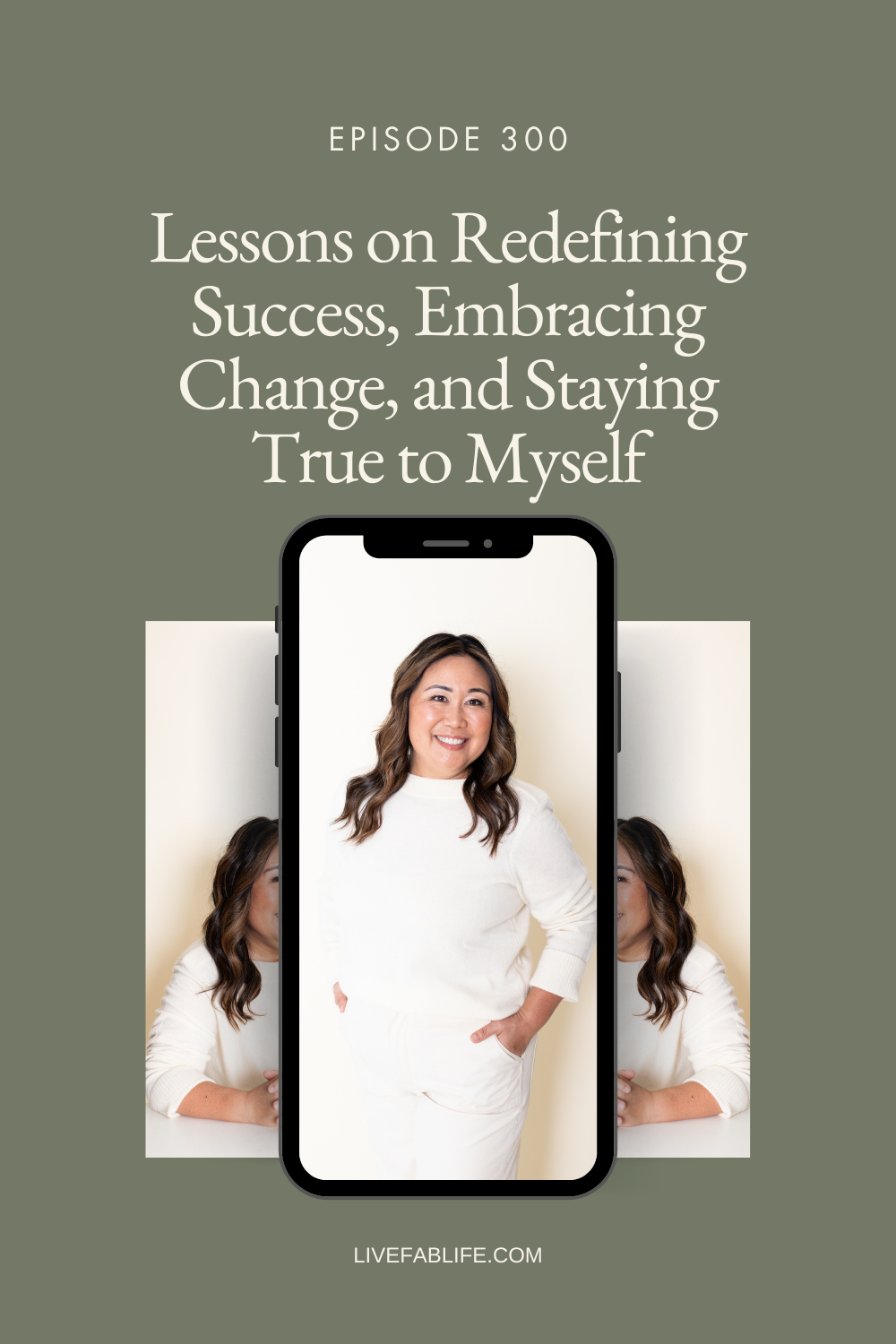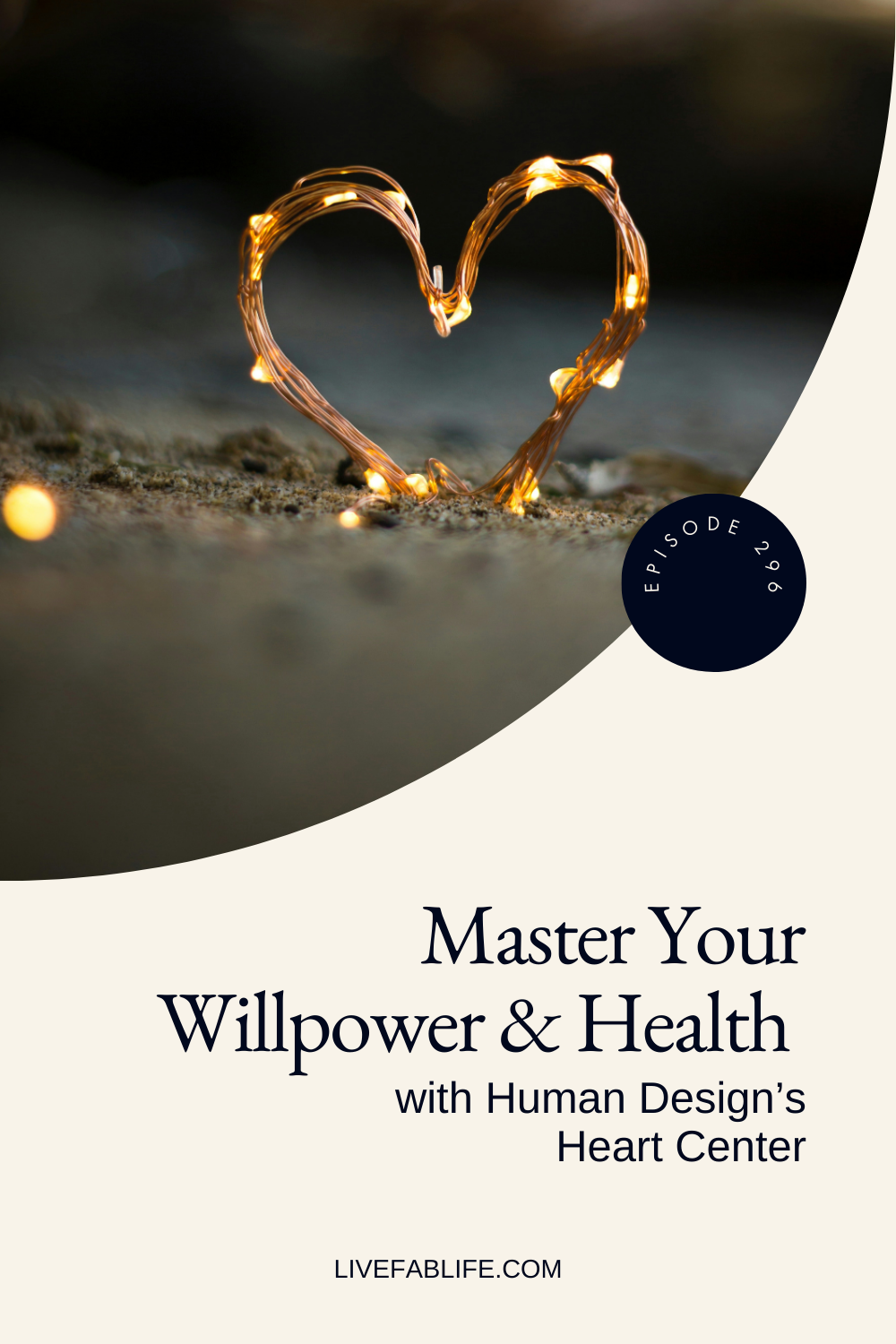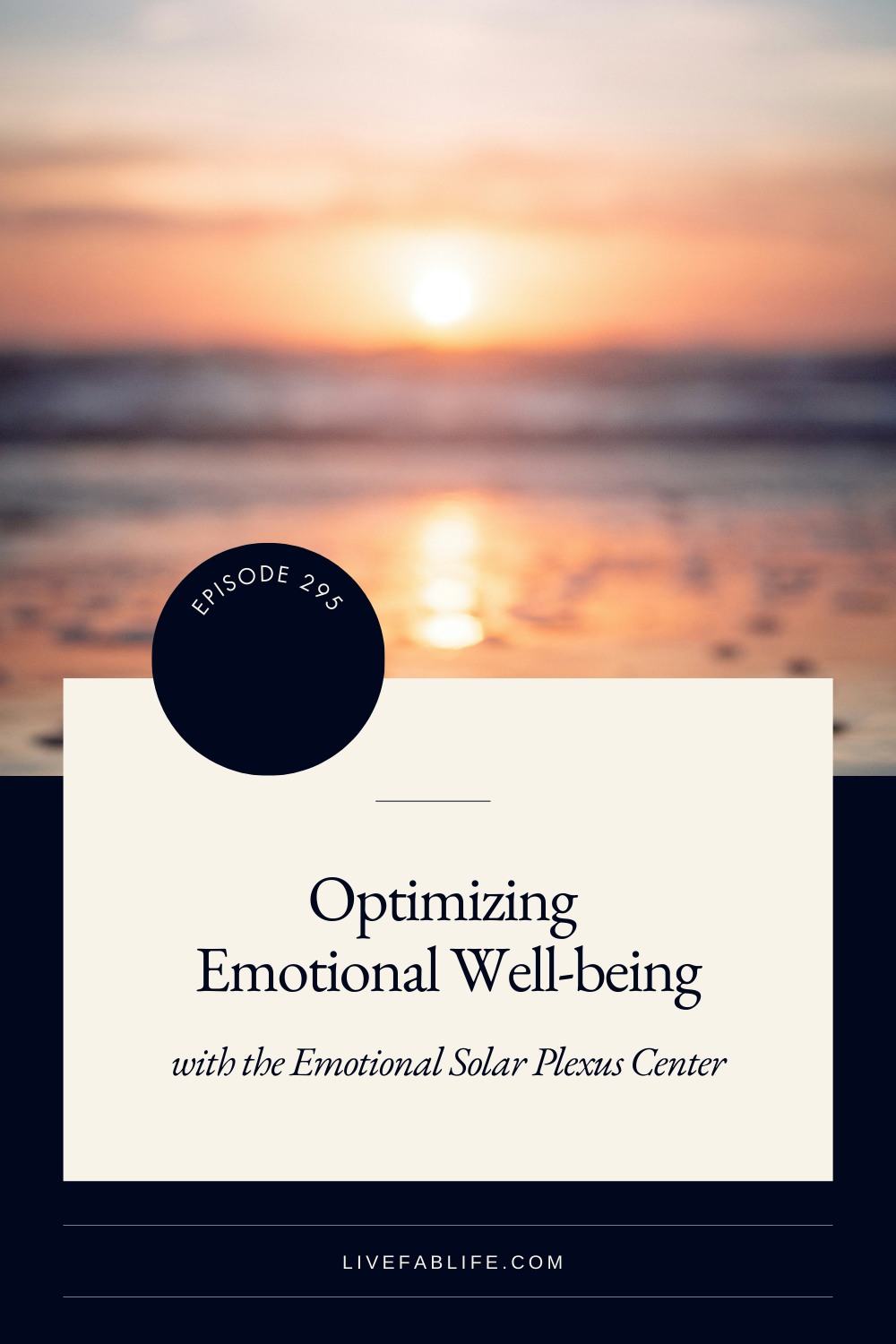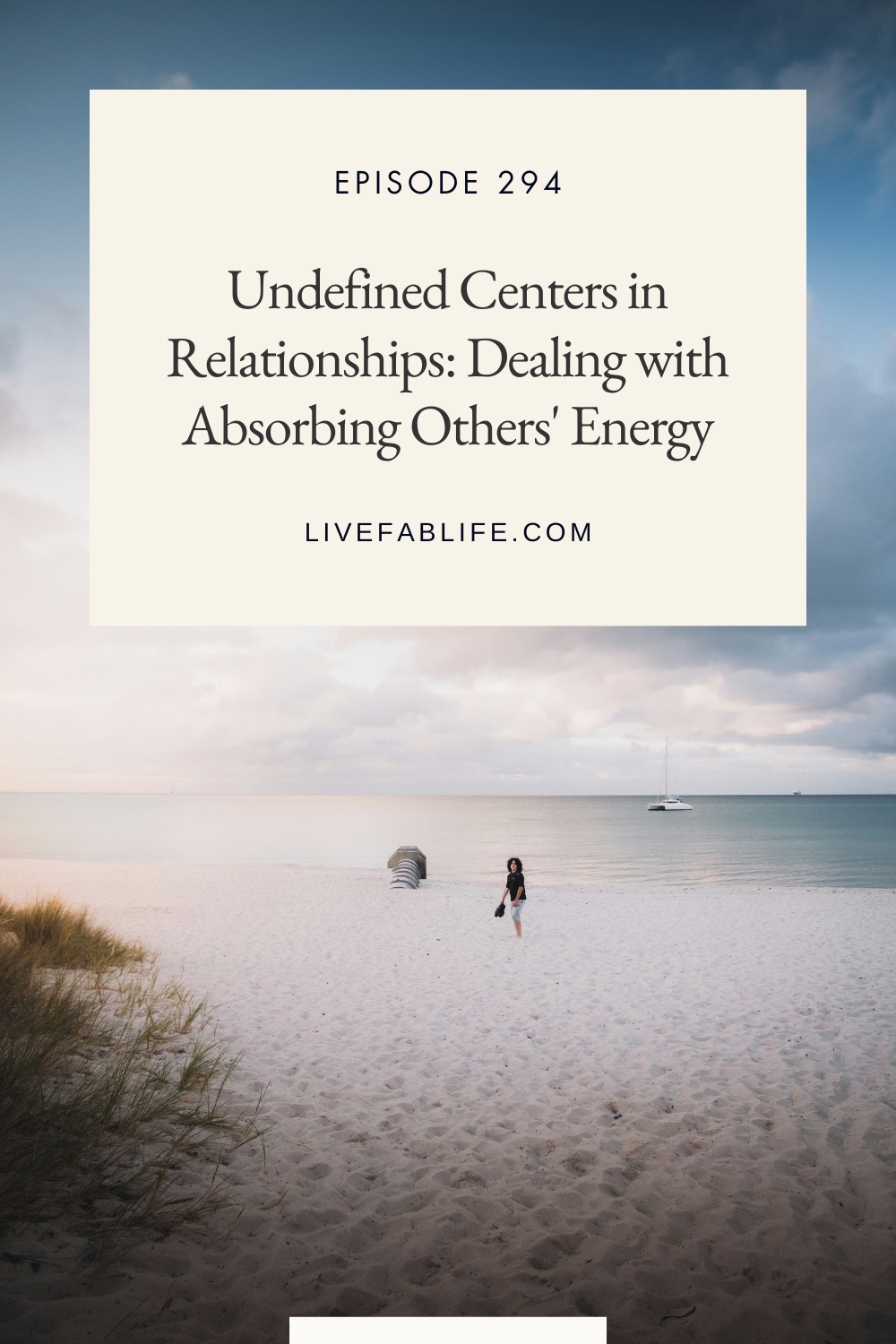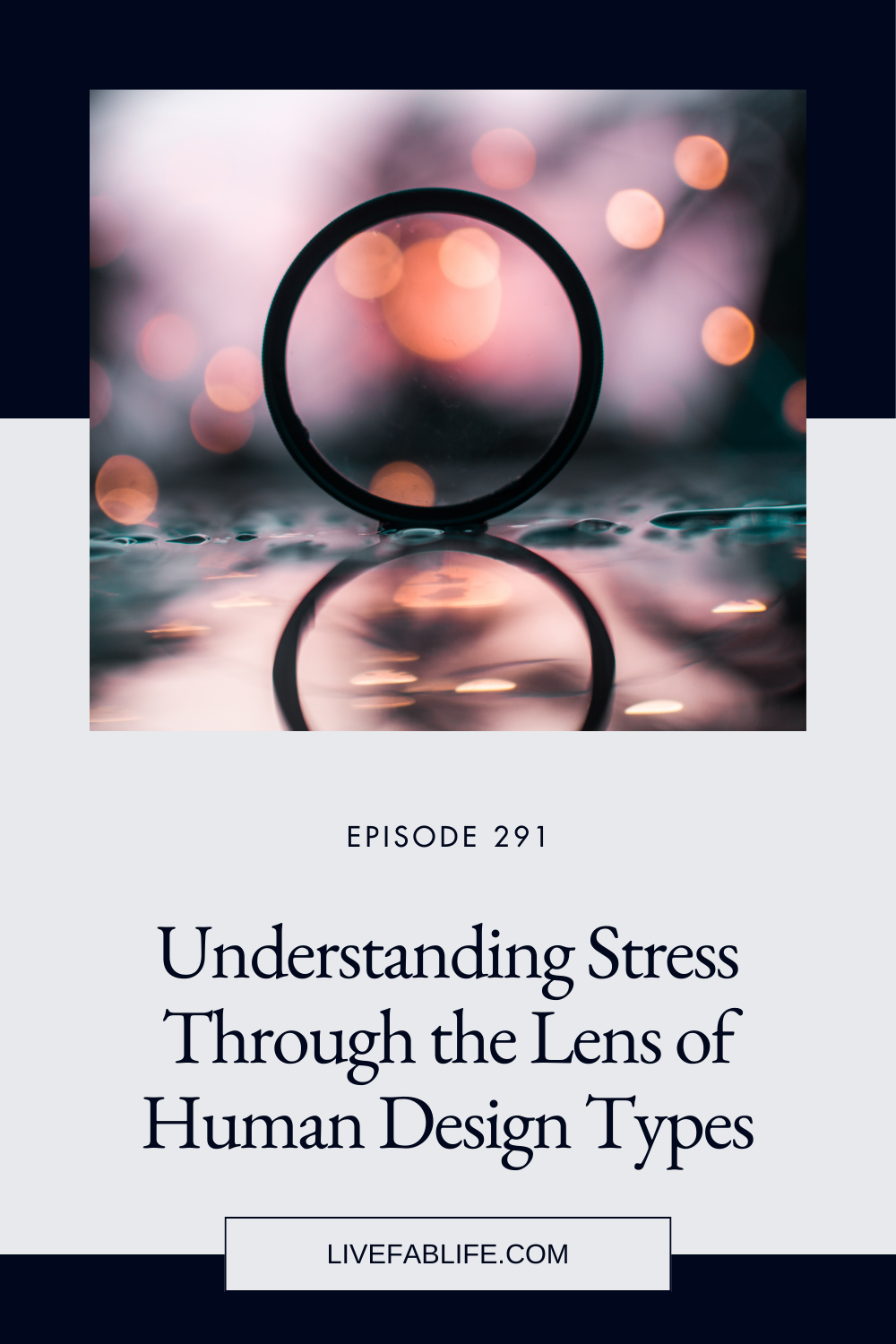Episode 159: Why We Have Clutter & How To Fix It With Carly Adams of Tidy Revival
Decluttering is more than just cleaning up. It’s organizing your environment and keeping yourself better in control of what you surround yourself with.
Clutter can be associated with laziness but this isn’t always the case. Often, there are deeper reasons behind clutter, and sometimes professional help can help explore and address this.
As a Functional Nutrition and Human Design Health Coach, I find that our environments play a bigger role than just being our surroundings.
In the last episode, I talked about hidden mold, but how about a problem much more visible to us?
Before we get into how to declutter, let’s first ask why we have disorganization and clutter, to begin with?
Joining me to help us answer this question is Carly Adams, a professional organizer, and owner of Tidy Revival.
Episode Highlights:
What a personal organizer does, Carly’s personal story with clutter, and how she organized her life
Big mistakes people make when decluttering and Carly’s steps to take instead
How to stay organized after decluttering
Practical tips to organize your mail, closet, laundry, storage, and much more!
Listen to the Episode:
Mentioned in this Episode:
Connect with Carly Adams of Tidy Revival:
Connect with Carly Adams of Tidy Revival on Instagram
Carly Adam’s Tidy Revival Website
Connect with Naomi:
Share the Episode:
“Don’t worry about what Pinterest is saying. Don’t worry about what Instagram is saying. You need something to be simple enough that you’re actually going to want to put things back in their spot. That’s it. ”
Read the Transcript...
Naomi Nakamura: Hello, and welcome back to Live FAB Life podcast. I'm your host, Naomi Nakamura. Joining me in this episode is returning guest, Carly Adams of the Tidy Revival. Carly is a professional organizer based in Sacramento, California, and she helps her clients get organized in their homes and in their businesses, working alongside with them in person and virtually. Carly first appeared here on this podcast back in April of 2020, in Episode 124, where she shared with us the story behind Tidy Revival, and her top tips on how to get started decluttering, and how to not make it feel so overwhelming.
What I really love about Carly's approach to this work is that in addition to helping people organize and declutter, she also taps into the mindset and the emotions behind why there's disorganization and clutter to begin with, and why we let things pile up, and why we get to the point where we need to seek professional help. As someone who takes a functional approach to health, and I peel back the layers and take a look at not just the problem that needs to be addressed, but how they became problems to begin with, I really appreciate this approach Carly takes in her work, and that's really what attracted me to her work to begin with.
In this episode, we talk about the top mistakes that she sees people make going through the decluttering process, the mindset behind clutter, and selfishly, what I really wanted to know, how to stay organized and clutter free when you've already gone through the process at least once before. That's a big problem that I have. So, we have a great time chatting, and I plan to have Carly back on regularly because I think this is a conversation that really needs to happen for all of us at least once a year. With that, let's get to the show.
Hi, Carly. Welcome back to the show.
Carly Adams: Thank you, Naomi. Thank you so much for having me.
Naomi Nakamura: You were first on, really, within a month, then the pandemic started last year. You were in Episode 124. It's really great to connect with you. I'm so curious to see how your business might have evolved or even what observations you've had in the past year, being who... We've all been at home. I know I'm not the only person when I say that I'm sitting in my living room, and I see this unaddressed mess there, and it just bothers me. It just bothers me and I try to ignore it. Then you get to the point where you can't anymore. So, I'm sure this has happened for many people over the past, gosh, 11 months. So, we'll get into all of that, but first, for those who maybe missed your first episode or aren't familiar with you, introduce yourself and tell us what it is that you do.
Carly Adams: My name is Carly Adams. I'm a professional organizer and I'm based in Sacramento, California. My business is called Tidy Revival and I've been in business since 2017. As you mentioned, definitely a lot of changes in the last year. When I started, I was a home based business, meaning that I worked with clients in their homes exclusively. That's all I did, and some small business clients, too, but it was all one on one in person.
Naomi Nakamura: In person.
Carly Adams: Yup, and that was everything. So, when the pandemic hit, and we needed to go into shutdown... and we're here in California, so things have been intense. Yes.
Naomi Nakamura: Shut down for a long time.
Carly Adams: And it's interesting, because the industry that I'm in, we weren't as specifically regulated as some other businesses, I decided to follow suit with what gyms and hairdressers were doing. I'm like, okay, I'll follow suit with that group, because it seems like they're more close contact, and it seemed like that was the best idea. So, I started doing virtual sessions with clients, and offering those, and then was kind of waiting it out. Then when things opened up again for a short while... I think that was probably June-
Naomi Nakamura: Yeah, it was in the summer.
Carly Adams: ... and I did go back in person for about three sessions. Then things shut down again, and at that point, I decided to just stay online. I had been starting to think about starting a course, which is something that I'd had in the back of my mind as a very long term goal, and originally I was like, oh, maybe late 2021. That could be a thing, and maybe I'll start doing virtual sessions, too, but they were very long term goals. COVID brought everything to the forefront and I was like, you know what?
Now is the time and we're moving forward. So, in the last year, I did start my online program. I started with a small group. We did it live the first time, and I really worked through that program with everybody, and then revamped it and reopened it recently. I'll talk to you more about that later, but I also launched an online workshop series for specific rooms. So, there's a workshop for our kitchen organization, bathroom, garage, pantry, things [crosstalk 00:05:28]
Naomi Nakamura: Yeah, we'll get into all of that.
Carly Adams: [inaudible 00:05:29] so yeah, there's a lot of that.
Naomi Nakamura: But I'm curious. It may seem obvious, but I really want you to define this. What exactly does a professional organizer do, and were you always an organized person?
Carly Adams: So, I'll start with the second question. No, I was not always an organized person at all, and I talk about it a lot. I'm very open about it, because when I was first out of college, that's when everything really first started for me and I felt like a personal disaster. I had tons of clutter. I had a lot of stress about it. I didn't really know where things were. I was constantly buying things because I couldn't find them. That happened a lot. I didn't know what I had on hand. I didn't have a plan when I was going shopping, and I was spending way too much money really needlessly on these double purchases, and also not having a plan. My finances were also a mess, too, and I think that's what really kickstarted...
Naomi Nakamura: I think some things go hand in hand, wouldn't you say?
Carly Adams: They do.
Naomi Nakamura: They do.
Carly Adams: Absolutely. It was from the moment that I decided to get my finances in order that it took me down this huge rabbit hole that then went from finances to decluttering, and well, making a plan around your finances, which was like, okay. If I can't be shopping all the time, then I need to learn about contentment in what I have, and then that took me into learning about minimalism, and then that took me into this decluttering, and then home organization, implementing systems, and it just is this huge snowball effect.
Naomi Nakamura: I love that because... and this is the space that my mind is now. I mean, you talked about being... and I think there's a difference between messy and being unorganized. Sometimes that means the same thing, and sometimes those are two separate things, but when you said... you were like, you had... you were buying double stuff. You couldn't find stuff all the time, but then you said it goes back to contentment. I think whenever we approach anything, whether we're dealing with decluttering, or whatever challenges or a source of stress that we have, is...
I find myself doing this a lot these days, asking myself, but why is this a problem for me, right? And really getting deep... in other words, why are my finances a mess? Why is my house cluttered? Why, why, why? But when you really think about it, and if you really want to address the problem, it's exactly as you said. You have to find out what is this... the word contentment. So, I don't know. I just find it really insightful, that when you start to peel back the layers, there's actually more there, which is... sorry, that's a little bit of a sidetrack conversation, but it's something that I've been constantly asking myself over the past year.
Carly Adams: So, then getting back to your question of what a pro organizer does, I mean, different organizers do different things. I see my role as being that coach who helps you undo those onion layers, and think about those questions, and really dig to the root of what's going on, and the shifts that you can make in your life, to make sure that we're not only setting up a pretty and a simple system, but helping you not get into the hole again and again, and again.
Let's figure out how to make lasting change and how to maintain these spaces that you're working on, and a lot of it has to do with shifts in mindset and habit changes. And really, again, going back to contentment, it's a lot of realizing what we do have. It's a lot of realizing that what we have is enough. It ends up being a lot of cutting out shopping just to shop, to fill that void, and it doesn't necessarily need to be tied to a budget. You could have ruined your budget for the fun things that you want to have. I know that I do. It's not like I'm not ever buying anything, but [crosstalk 00:09:22]
Naomi Nakamura: You're more intentional about it, and purposeful.
Carly Adams: Yeah, yeah. This week, I wanted to support a local business, and I'm having some cupcakes delivered on Friday that I'm very excited about. Also, my husband doesn't know that they're coming and they're going to be his favorite flavor, so it's fun little things like that, but those cupcakes aren't going to be at my house in six months. We're going to eat them pretty quick.
Naomi Nakamura: Funny you should say that. I actually just posted a reel on Instagram just within the past hour of this homemade jam that I got. I'm a sugar detox coach, so sweetness... it's just my taste buds have changed. Sweet things don't necessarily appeal to me, but it was done by this... it was for a nonprofit thing to help an organization that feeds people. So, I was like, well, this actually sounds really fun. It's homemade. I'm helping this charity, or charitable efforts, and it's a nice treat for me that, like you said, won't be around forever. So yeah, it's like these little indulgences.
Carly Adams: Yeah, yeah, exactly, and just being more intentional versus what I used to do when I really started getting into my finances and figuring out where the heck is all my money going? The answer to that question was... this is the honest truth. It was Starbucks, Walgreens... because I worked in downtown San Francisco at the time, so I was by a Walgreens constantly. So, it was like nail polish, lip gloss-
Naomi Nakamura: Gum.
Carly Adams: ... [crosstalk 00:10:43] snacks, gum again, and Taco Bell. There was a Taco Bell within walking distance of my office and I like me some talk about. So, that's where it was all going and it was crazy. The amount of money I was spending at just those three places every month was insane, but in making different choices of being more intentional about where I was spending my money, and what I was doing, and what I was bringing into my home, and getting to the point where you don't want to bring things in that you know you're just going to declutter in six months, that's where the magic really happens.
Naomi Nakamura: Well, I have to say, after you were on the last episode, last April, we talked about how I had this problem of letting my mail pile up-
Carly Adams: Yes.
Naomi Nakamura: ... for months, and you talked about getting this napkin holder to put right by your front door. I have a napkin holder right by my front door, and I put my mail in there and I stand it up so it doesn't get lost in the shuffle, like you said, like vertical, but then I thought about, why do I have such an aversion to mail? I realized it's because I hate having to deal with paperwork. What I get in the mail these days... most of my bills and stuff are done online, so I don't get those statements in the mail, but I get a lot of junk mail, and the things I get are medical bills and tax information, and all the things that I dread dealing with. Or even catalogs. I don't even know how I get on these stores catalogs, but I'm like...
Again, I don't want to look at those because it's a temptation for me to then mindlessly shop for things I don't need that's just going to add to my clutter. So, when I realized all of that stuff, it's a lot easier for me now to... Well, first of all, I got myself off a lot of those lists, which reduced a lot of... which, I don't even know how I got on those, but... Anyways, long story short, that little system there has really helped me reduce the piles of mail that I used to see and have around my house, and I go through it every four or five days, and most of it goes straight to the recycle bin, but it's also helped me to stay on track of like, oh, I need to pay my dog's pet license for the year, or all those little things. I actually have to pay the traffic ticket that I got.
Carly Adams: Oh, sorry.
Naomi Nakamura: So, I said... anyways, it helps me to stay on top of those things. Whereas before, I used to just ignore it, because they don't want to deal with it.
Carly Adams: Oh, yeah, and I hear that all the time. We were actually talking about that in the Q&A call from my course this week. People struggle with mail and how much it annoys them, and going through those strategies to make it a regular habit to go through it. Another thing, too, when you walk in the door, instead of putting it all automatically in the mail holder, if you just pause for just a few more seconds, flip through it, and figure out what's going to go to shred and what can go to recycle, it does end up being 90% of it. I'm also going to send you, for your show notes... there's this article... I can't remember where it was from, like Wall Street Journal or somewhere, and it's tips to get off of those mailing lists, different tips that you can take.
Naomi Nakamura: Oh, yes. Please.
Carly Adams: So, we'll put that in the show notes, too, and I'll send that to you after this.
Naomi Nakamura: Yeah, I've got all these catalogs I get, and I haven't heard of these brands before. How are they getting my information? Then you feel like... once the pandemic hit and a lot of the retail stores were either shut down or they had to limit capacity, it's like everybody went back to mailing catalogs.
Carly Adams: Yeah.
Naomi Nakamura: It was intense for a while there.
Carly Adams: And I don't know about you, but I end up getting catalogs that just seem like the next two demographics up for me in age. I'm like, what? How does that... All right.
Naomi Nakamura: Who Sold my information?
Carly Adams: Like, this is the Golden Girls catalog. What happened?
Naomi Nakamura: Okay, so in your client work, I am curious, what are the biggest mistakes that you see people making? Especially in January or the new year, we all go through this... or even in the spring, right? Spring cleaning. I'm going to declutter. I'm going to get organized, but I'm sure there's mistakes there, because I'm sure I probably did it all myself. So, going from an in person to now an online business, I'm sure you're exposed to many other people, maybe from areas that... outside of Sacramento. So, what have been the biggest mistakes that you've seen people make?
Carly Adams: I would say the first thing is, A, it's really hard for people to get started. Like you were talking about that pile that you just ignore, ignore, ignore, it's really, really tough to get started. So, when people come to me, it's not a casual thing that they've been kind of, "Maybe. Maybe I'll get organized." This has been bugging them for weeks, months-
Naomi Nakamura: Years.
Carly Adams: ...years, and we're dealing with piles that have just been sitting and growing, and being ignored, and lugging people down to their core. So, let's talk about it because I want to help people get started efficiently. The first thing that I see people do is to just kind of, "All right, I'm going to get going," and then they just start attacking it. I highly suggest, people, that they make a plan of action before they get started. You want to figure out, okay, I want to work here and then I want to work here.
You want to have this action plan in mind, because if you just get started, what ends up happening a lot is that people are getting started in an area, and then maybe you're in your living room, and then you find a few things that need to go into your bedroom closet. So, you're going to put it away, but you realize that doesn't really have a home, so then you're like, okay, well, I can put it over here. Oh, my gosh, what is this? Then you're decluttering in there a little bit...
Naomi Nakamura: You're just moving your pile of pajamas.
Carly Adams: You're just doing a teeny tiny little bit in a bunch of different places, which, A, feels discouraging, because you don't feel like you're making any headway. B, you're not finishing anything, which for a lot of people, makes them feel constantly like, oh, I just can't finish what I start. That's the type of person I am. Then you have these stories that you're telling yourself that you're not through, you just needed to have the right plan, and the plan helps you stay focused to, like, this is what I'm doing first. I'm going to keep working on it.
Yeah, things will go to other places, but we're not going to worry about that right now. I'm going to keep working in this place, and then when you get that space decluttered and organized... ta-da! Then you're done. You get that big check mark off your list. You're feeling accomplished, and that feeling of accomplishment then can drive you to the next space to work on it, but when you have the action plan that helps you stay laser focused along the way.
Naomi Nakamura: I was going to say, to emphasize your point, I think was about a year ago... and I might have shared this the last time we spoke... I decided that I was going to redo my room, because I wanted to get a new bed. Well, there's a lot of decluttering that needed to happen there because I was getting a bigger bed, so I had to make room for it. Then I thought, well, all of this stuff can go into my storage unit. So, I started to do that decluttering and then I realized, oh, I don't have room in my storage unit.
I need to clean out my storage unit, and then that stopped the whole process, because I didn't have that game plan. I literally pulled it off maybe another two weeks and I was like, okay, I literally have to sit down and write this out to figure out what's dependent on what, so that I'm like, okay, I need to do the storage unit, because then I can do the bedroom, and then this can happen. You have to figure out, like, if I start with this, is there something else that's going to depend on it, and it's that... what needs to come in what order?
Carly Adams: Absolutely. Oh, I love that you said that. Then also realizing that there's going to be a bunch of little stuff along the way that you just let go. Just don't worry about it. You're not going to get every single space done all at once. I think that's something that's really frustrating about a to do list, but it can be freeing if we look at it like this isn't the priority right now, so we're just going to let it go and we'll get to it later on the list. We have it in place, but just not right this second. Then the second thing is decluttering first.
Or, the mistake would be to not declutter first, because I see a lot of people, as their first step... okay, I want to get my pantry organized, and I saw these beautiful pantries on Instagram and Pinterest, so where do I go to get that stuff? Okay, I'm going to go to Target. I'm going to go to Container Store, I'm going to get all the pretty containers and take them home, and that's it. That's the solution, but you don't know what you're storing until you know what you're storing. So, you need to declutter first, because again, it goes back to having that plan. You can't really create a solution and you can't create a simple, simple, simple solution, which is going to make it so much easier, especially if you have a larger household.
You need something that's so easy so that you can get people on board, and that they are going to understand how to work that system and how to help maintaining it, so that the woman, the mom is not the gatekeeper of all things organization in the house. Because that's something I see all the time, too, where people feel it's their responsibility to take on that whole burden. We don't have to, we just need to make things really, really easy to get everybody else on board, so it doesn't fall on us.
Naomi Nakamura: A friend of mine redid her whole fridge, probably about a year ago, and then I was like, oh yeah, I want to do that, too. We were going to the Container Store every Sunday. That was our thing, but she was like, "Well, you need to figure out what's in your fridge." I'm like, "What do you mean, what's in my fridge? I know what's in my fridge." She's like, "No, no, no. You need to figure out what you need where, because you need different containers for different things, and you need to figure out how they're all going to fit together. It's like a jigsaw puzzle," and I was like, "Oh, I didn't even think about that." I think that's what you're saying is, take out the stuff that you know you don't want to keep around, so you can figure out and maybe do some measuring or whatever you need to do, to figure out what it is you need.
Carly Adams: 100%. And a thing with fridge organization... because I love a beautifully organized fridge as much as the next person...
Naomi Nakamura: [crosstalk 00:20:37] stay organized.
Carly Adams: Well, and the thing is, it depends on the family. I will say, I don't have a bunch of beautiful fridge bins specifically, but the reason is, we're not eating the same foods constantly. We switch things up a lot. So, those bins are really great if you know exactly what's going to be in them, and that thing is very consistently sized, but the container that's going to hold blueberries isn't the same container that you can use for a head of broccoli. So, if the sizing is completely awful lot, I feel personally like it'll be more frustrating for me than it's worth it, so that falls under things I just let go and don't care about.
Naomi Nakamura: Hey, it's going to be different for everybody.
Carly Adams: Yes, and that's another thing I talked about, too. I talked about this a lot... but getting organized to the point that's good for you. Don't worry what Pinterest is saying. Don't worry about what Instagram is saying. You need something to be simple enough that you're actually going to want to put things back in their spot. That's it.
Naomi Nakamura: And you want to keep it up.
Carly Adams: Yeah. if it's too complicated, you're going to be fighting along the way. You're going to be fighting with yourself, you're going to be fighting with your household members. It's not worth it. You just want everything to be super simple. I was talking about shoe organization with one of my clients yesterday, and I was saying that the bane of my existence is when you have... say, up in the shelves of your closet, you have a bunch of shoe boxes stacked. So, then when you want to get one of the shoe boxes, you have to... maybe it's a shoe box at the bottom. You have to pick up the other shoe boxes, pull them out, hope that it doesn't catch anything, hope nothing's falling on you, and have this potential shoe box, shoe avalanche going on.
That feeling, I can't stand it at all. So, I end up suggesting a lot of systems that involve items that stay put, so you can... There's this really great acrylic shoe boxes in my own closet, but I also love these drop front shoe boxes. These are all at the Container Store. It's a little extra. I'm not going to lie to you, but I use this just for my lovely fancy shoes that I love so much, and then they each have their box. The boxes are stackable, and I don't have to pick things up and pull. I can just pull out the drawer that has the shoes, or you can flip up the top and grab the pair of shoes you want.
Naomi Nakamura: That is brilliant.
Carly Adams: It just makes things so much easier. You don't have to worry about the avalanche ever again.
Naomi Nakamura: I got this really oversized shoe rack, and I decluttered my shoes, because let's face it, I don't know when the last time was that I wore heels. So, I kept a basic black heel and maybe a couple of fun ones, but my whole thing now is that I'm not allowed to buy another pair of shoes unless there's room on that rack.
Carly Adams: Yes! That was that.
Naomi Nakamura: If there is no room, I need to donate or get rid of something if I want to get another pair, because I'm like, I don't want to be trying to fit shoes in other places because there's no more room on that rack.
Carly Adams: It completely makes sense. Then it honestly makes it easier when you're at the store, because it makes it easier to not get tempted when you're at home thinking I have enough at home, and that feeling of contentment. Whereas if you find a shoe that's amazing, and you know that it easily bumps this other one at home off the list, well, then great, then you're like, this is a magic shoe. I need it right now, and it makes sense.
Naomi Nakamura: Do you find, in the past year, that people who have maybe been working on trying to feel that feeling of contentment... has it been more challenging this past year, being that we've all been more or less staying at home, our social lives have been limited, the things that we normally would do to maybe find contentment would be limited? Because I know I have excessively shopped directly from Instagram, and they redid the darn app, let's be honest, to make it easier to shop on.
Just because I feel like I need something to make me feel good today, what can I buy on Instagram? That was the source of contentment for me for a little bit in those months where I'm like, I'm really over this, and I'm past that stage now, but we've all gone through that over the past year. So, I don't know. Have you found that whole finding contentment with some of your clients who are trying to declutter, but be trying to band aid that feeling with that mindless online shopping that's so easy to do?
Carly Adams: Well, I think it depends on the person. If you've never really honed in on really trying to get to the root of contentment, then I think It's going to be a lot harder. If that was part of your practice before, then I think it was maybe a little bit easier. I think no matter who you are, that this last year has really highlighted our need to think about what we're grateful for, because there are a lot of things that I know I was taking for granted that I didn't think could be suddenly taken away, like going to the movies.
Naomi Nakamura: Going to the gym.
Carly Adams: Yes, going just anywhere.
Naomi Nakamura: Yeah, just going anywhere.
Carly Adams: Just going. Or hugs, or close talks with strangers. It's those little things that we haven't had, that really highlighted the need for gratitude. I know that's something in our house... especially when things were very bleak and hard... were taking a lot of walks over the year. One of the things that we started doing, especially if we were just feeling awful... because it was terrible... and we had a good. We've been very fortunate, and even that was hard. I know there are many people who've had it a lot harder, but we had days where we were walking, we're feeling crummy, and we'd just turn to each other and say, "All right, what are we thankful for?"
And some days, figuring out what you're thankful for is tough and you're starting with the basics, but even just reminding yourself, a roof over my head, enough food to eat, having someone to talk to, my friends, Zoom. Going through those things and remembering what you're so grateful for, I think then makes it easier to remember what we do have, and feeling fortunate in that way, but I think that this year has been really, really hard. Contentment has been really hard. Feeling uplifted has been really hard. Shifting to being at home, and in lieu of going out or doing the things that we usually do... a lot of people are shifting to online shopping for sure, or other activities. I know, drinking and stuff is on the rise, too, and it's just a hard time. It's just a hard, hard time. Yeah, I think I just went off on a tangent.
Naomi Nakamura: I love it when our conversations just go somewhere organically. So, any other big mistakes that you have observed people make?
Carly Adams: Those are really the big ones. I know we didn't talk too much about the third ones, but I think the third one that we mentioned... over complicating your solutions. I think that that's... comes into play a lot, and I think it's really important for people to think about when they're creating their solutions, to just pause for a moment and just think about, what is the easiest way that I could do this. That could be anything from... I have a client who a few years ago, she had two young children and they had a ton of laundry.
And she was like, "Yep. A few years ago, I stopped folding towels. I don't care about it. This isn't making the list, and I am tired of doing it, so I just don't. I put them in the bin, and you know where to find it, and no one cares." That saved her so much time because she mentally took this off of the list of ‘things I care about', and it was so freeing. I think that we need to do that more, especially this year. Why are we putting this pressure on ourselves to be so perfect? Perfect is over rated. I had a friend today who was seeing a story... she was talking about how this need for being perfect dips into what we consider professionalism.
Naomi Nakamura: I almost think it's the sense of needing to maintain control, because maybe you don't have control in other areas of your life, and I am a recovering perfectionist, so at least that's been my experience for me.
Carly Adams: Yes, likewise. I'm type A. I'm trying to be more chill. I think that's another thing, is somebody who had no systems in place and felt their life was very messy, and then as I got more systems in place and got more control over things, and things got better, then I also need to learn that I need to loosen up a little bit because it's not like everything will be good if I am rigid all the time. Just calm down, lady. Everything's going to be fine. You've got to live a little.
Naomi Nakamura: I'm curious. When you work with families, particularly people who might have older kids who are above toddlers, where they can actually be engaged in the process, do your clients bring them into the conversation to talk about what is the system that's going to work best for us as a unit in this home?
Carly Adams: It really depends. I'll tell you about a couple of scenarios that are coming to mind. Sometimes it ends up being, "Let's get the kids input on what they think is going to work best." Or it might be telling kids, "Hey, this is what we're going to do. Let's get on board now," and just informing them of what it is. I had a client recently... I was working with her son and he was having a tough time keeping his room clean, and he was having a tough time putting away his clothes, but what we ended up doing at the end of the day, and what ended up working out really well, was something he suggested, and that was to have a second hamper for clean clothes.
Because he was like, "Look, I don't care about folding them." He's a teenager. He's like, "I don't care about this. What I really want is a bin for my clean clothes, and then I just pull out what I need when I need it, but then I don't have to hang things up or fold them, because I don't care about it." His mom said, "Okay, that's fine. We'll do it your way," and then she stopped caring about it. She stopped having to ask him to do this thing. He just kept his clean clothes in the clean hamper, his dirty clothes in the dirty hamper, had a couple things hung up, but everything... it stayed a lot cleaner and it worked, and it's because he requested this very simple system.
Naomi Nakamura: Love that. Can I tell you what I do?
Carly Adams: Yes.
Naomi Nakamura: Because the bane of my existence is folding things. I will do dishes. I will take out the trash. Doing laundry is fine, but having to fold and put away, it's literally the bane of my existence. When it comes to towels and stuff, I just leave them in the dryer, and I just take out when I need a towel or a dish rag, and then when it's empty, I'm like, oh, got to do that again. You know what I mean? I guess a basket would work better, but my dryer becomes my basket.
Carly Adams: Well, then it becomes... then that's your cue. Time to do laundry because I'm out of towels. The thing is, if it works for you, then it works for you. That's something... Okay, there are a lot of really great things that I took out of Marie Kondo's book. I loved that book, but something that for me, personally, was hard to get on board with was the folding. I didn't even try it with most of my clothes. I mostly just tried it with my socks. I was like, yes, and I'm going to have this beautifully folded sock drawer, and I did for three months. Then I was like, I cannot be bothered with this anymore. I'm over it. I'm over it.
Naomi Nakamura: I bought on Amazon... you how when you... in Gap, they have their clothes folded perfectly, but they have that little mold thing?
Carly Adams: Yes.
Naomi Nakamura: I bought the mold, and even though I have it, I still cannot stand folding clothes, but I thought that would be my thing to help me, and I still can't stand it.
Carly Adams: That's fine. A lot of your clothes don't even need it. Hang up what needs it. Stick some drawer dividers in your drawer, and just toss the rest in there, and don't worry about it ever again. Just let it go.
Naomi Nakamura: The stuff that gets wrinkled is the stuff that gets hanged, and everything else is whatever.
Carly Adams: Exactly. It's fine. Everything's fine.
Naomi Nakamura: So, I think a lot of us, we want to get started, and this is the question I have for you. Once you get organized, what are your tips to stay that way? I cannot tell you how many times I have cleaned out my storage unit and got it so minimal and so organized, and then... and I tell you, it's a disaster again right now. I have to figure out what weekend... and I have to dedicate a whole day to it because it's a disaster. So, once we get organized, what's your tips for staying that way?
Carly Adams: I will say a couple of things. Know that just because you do a first round of decluttering, it won't be the last that you do. Or even in the first year that I was really, really decluttering, I probably went through my own closet six times, but even now, I go through it four times a year, and I'd switch out. I mean, it's technically like a capsule wardrobe. I just have a small selection of clothes that I choose from. It's not a 50 items or less. It's nothing like that. It's just a small selection, so that I don't have to think about it every day. Well, when I switch it out seasonally, I take that opportunity to basically review everything that I have in my storage, and just evaluate it, and give it a little judgy love. Do I still love you? Do I even wear you? If you haven't made the cut the last few seasons, then-
Naomi Nakamura: Why are you still here?
Carly Adams: ... it's not working out, babe. You've got to move on, and just let her go live her best life with somebody else. So, just know that decluttering is an ongoing muscle. You're going to be flexing it. That's okay. It's not a one and done situation. Not to make you feel it's never done, but it's ongoing. Just any other good habit, like getting enough sleep, being mindful, eating well, not having too much sugar. Those are all ongoing things, too. This is also going to be an ongoing practice, but it doesn't mean we need to slave away all day, every day, thinking about it. I'm going to put this in my notes, too. I have a blog post about the Power of the Quick Tidy Up. It's basically like, okay, your house feels... it's crazy.
Let's go ahead... let's set a timer, 15, 20 minutes. You're just putting things back in their space. Once you are doing that, if you're finding things that don't have a home, that's some clutter right there, so let's either figure out, does it need to live in your house? Or is this just something that you accumulated along the way, that you don't want to have anymore? Are we going to get rid of it, or do you need to create a home for it? Then just sit down and think about it. Then once it's coming out again, then the next time, you don't have to shuffle it from place to place. You just put it back in its home.
Naomi Nakamura: I think these are good habits to have, and like you said to do often, whether it be four times a year or so, because I think it makes the time when we do have to do it not feel so overwhelming, or insurmountable.
Carly Adams: Oh, yeah.
Naomi Nakamura: Because I do my storage once a year, and I'm like, it's going to take me a full day to go through that again, and am I going to have to get a hand truck to pick stuff out? There's this whole effort thing and I'm like, why do I do this to myself? If I just do it every few months or so, it doesn't have to be this production.
Carly Adams: Yeah. I think, too, like we talked about at the beginning of our conversation, the more you're decluttering, the more you're going to want to not have to declutter a few months down the line, which means that you will be more particular and intentional about the things that you're letting come in. Because once it's in the door, it's a lot harder to get rid of. We as humans, the longer something's in our possession, no matter what it is, from a piece of string to a business card, to an actual item that we cared about, the longer we have it, the harder it is to let it go. So, if we're just more intentional about what comes in on the front end, it's easier on the back end.
Naomi Nakamura: I love that. Any other tips for us?
Carly Adams: Okay, so I know we talked before this about my four step system that I said I would share with you. So, this is the four step system that I use with all of my clients, all of my students in my course, too. It boils down to these four basics. Number one, starting with confidence, which includes having that action plan that we talked about, and also the basics of decluttering, and knowing where things need to go once you want to get them out of your house. Making tough decisions, which is all about digging into decluttering and the really hard things about decluttering.
Maybe decluttering gifts, anything kept out of guilt... gifts fall into that a lot of times... sentimental items, maybe items that you've inherited, that you don't necessarily use, want, need or love, but again, falling under guilt of having to keep them. So, we dig into that a lot. Organizing a pro, which is how to create the simple systems. So, not me just telling you, "Okay, you should do this, this, this, this," but learning how I think when I'm creating a solution, so that you can ask those same questions of yourself in whatever space it is, take measurements and figure out what the solution is going to be, and making them, again, simple as possible.
Then the fourth step is that maintenance, maintaining your clutter free home, and how to build that into your schedule, how to stay motivated, how to make this something that you don't feel is... Something that's manageable, and you can build into your schedule without it feeling it's your new full time job, because nobody wants that, and that's something that I hear a lot, is that people feel really frustrated at the prospect of having to maintain it. Then that makes them not even want to start at all.
Naomi Nakamura: I think that's where your... about the simplicity comes in, right? So, make it so simple, so that you don't even have to think about it. You just do it.
Carly Adams: Yeah. I think we... again, getting into this perfectionism, there's this perceived pressure from social media and Pinterest, and stuff, to make things a certain way and make them ‘perfect', but if they're too complicated, we're not going to want to keep them up. Which means that if it's too hard to get into, if something is, I don't know... you have a compartment for batteries, but it's in your closet behind this other thing, so you kind of have to Tetris things around to get to it. You're less likely to go to that place to get the batteries. You're just going to go to the store and get more batteries, because using that system becomes annoying.
So, let's figure out how to make things simple for maintenance. This is jumping back a little bit, but you were talking about working with older kids. I worked with a client recently, and one of my sessions was with the daughter, and she's like eight, nine, 10 age range. She was having a tough time keeping her room... putting away things in a certain area of her room. Everything had a home, but just actually making it happen was really, really tough. So, we sat down and we really talked out her whole day. What does your morning look like? What does your school day look like? What activities are you in? What is your evening routine?
Because we needed to chat and figure out, where in your day can you fit setting a timer for 10 minutes... and she had a timer because she used it for school. Where can you fit 10 minutes to make sure that you pick up the things in your room? And after talking through... because in my mind, I was like, oh, maybe this would be a thing right after school, or at the beginning of, but it wasn't until we talked it through that we realized, this needs to be part of her evening routine. The other times of day were to stressed. They were going to be running around doing things, and it was going to get bumped from the list every day.
So, we put it in her evening routine, and then we made a fun little chart they can print out at home. I sent it to them. It's personalized with her name and her exact routine, and then they can pop it in a frame, hang it up, and she can dry erase marker that. Check, check, check, and work on it every single day. Sometimes you just have to sit down, and it's maybe not what we think it's going to be. Maybe it's something a little bit different, but you have to sit down and think, where does this work for me? Not this blogger, not this person who wrote this article? How does this actually fit into my life?
Naomi Nakamura: I love that story, because you gave this child the opportunity for her to have her voice. So, it's not even what is my mom telling me? Or what is Carly, who's working with my mom, telling me? It's that you gave her a voice to say, "This is actually what's going to work for me." I would imagine. I don't know, but I would imagine that would help her with compliancy, to compel her to keep it up, because it was something that she determined would work best for herself.
Carly Adams: Yeah, and she really got to determine what her own goals were and be her own advocate for making it happen, and it ended up being way more successful, like the other example with the teenager who wanted the simple system. I mean, it was his idea.
Naomi Nakamura: Right. He's being heard. His opinion matters.
Carly Adams: Yeah. So, then the upkeep is a lot easier, but even with little kids who maybe aren't the best people to go to if you want to create a simple system, you're not going to ask a two year old, but I've worked with someone... oh gosh. She was four years old, and we were talking about... I was working in her dresser and reorganizing it, and she came and said, "Can I help?" When I just still working in person. I was like, "Sure." So, we were holding the clothes and I was showing her how I was doing it.
I said, "Is this something you want to help your mom with?" and she was like, "Yeah, yeah." She was like, "Oh, but I think this is an easier way. What if instead of folding it, what if we just roll it?" Then she started rolling the clothes. Then I was like, "Yeah, let's do it," so then we rolled all the clothes, and she was doing it. Then I let her mom know her plan, because it came from her. If she gets to roll her clothes up and put them in the drawer, it's her way, she's going to be way more likely to want to help and be proud of that process.
Naomi Nakamura: I bet that's a memory that she's going to carry with her, and even with the older kids, that experience is going to be a memory that they carry with them. They just might continue on into their adult lives, right?
Carly Adams: That warms my heart a little bit. I hope.
Naomi Nakamura: I know that there have been moments, from when I think back as a kid, where different things, like working in the garden with my grandfather, and those were just... probably nothing really significant about those moments, but it's those little moments that we retain with us. When we're... as adults going about doing these things, those are the things that we remember.
Carly Adams: Yeah. My dad used to quiz me on how to change a tire, and I had my husband quiz me on it recently, because I'm always afraid I'm going to forget. I mean, usually I call AAA, but-
Naomi Nakamura: I do, too.
Carly Adams: ... if I don't have a cell reception, then I need to know how to do it. So, he quizzed me on it and I got all the steps right. I was really proud of myself. I'm like, okay, it's in there. It's in there.
Naomi Nakamura: Yeah. So, you have a program now that I think by the time this episodes come out, will likely be available-
Carly Adams: Yes.
Naomi Nakamura: ... or will soon be available. Tell us about it, because you're only one person. You can only work with so many people at once, and I know a lot of us need this... need help with this. Yes, we need to know and get tips for how to do it, but we also just need somebody there with us. So, I love that you created a program because you can be there with us, even though you're not actually there, if that makes sense.
Carly Adams: Yeah.
Naomi Nakamura: Tell us about it.
Carly Adams: Thank you for asking. I'm really excited to open this back up. My aim is to create a community of people who were all going through this together. Let's get our spaces decluttered and organized. The different steps that I talked about, those are the four modules in my program, so there's videos along the way, and there's homework. It's a couple videos of little homework breaks. You know exactly what to work on. You have a workbook showing... going over what we just talked about. So, everything's laid out.
I'm a total dork for this. It's laid out in a very organized way, so that you're not wondering where you're at and not wondering what the homework is, or where to follow along, but then we also have a community. So, there's a private Facebook group for people to post their wins. We have a motto in the group ‘everyone is a win', because in the very beginning, people were like, "Oh, I mean, I kind of have a win. It's not that big deal," but it's all a big deal. Everything's a big deal. So, everyone is a win. People can post what's going on and they can [crosstalk 00:45:00]
Naomi Nakamura: Share ideas.
Carly Adams: Yes, sharing ideas with people creating their solutions, if they need a little feedback, or if they want to share just what they've done, or if they have questions, they want input? I can give input on it, but other people can, too, and that helps everybody learn as they go, and as they're creating solutions. Then also accountability. So, if somebody was like, "Hey, my plans for this weekend are going to be X, Y, Z," then we can circle back and say, "Hey, you said that you were going to be working on this. How's it going?"
Touch base and circle back so that people individually are also heard about their specific goals. Then there's also Q&A calls each month, twice a month, that are live, too, and people can submit questions, and photos and videos, and that's just with me. I'm reviewing people's questions, reviewing their spaces, and you can get direct feedback. We can talk it out. Then if people miss those, they're in the Student Portal, too, so you can check them out on there time as well.
Naomi Nakamura: I love that. I think that would be so great, just for the motivation to... obviously, not get started, because if they're there, they already got started, but just to keep up and maintain.
Carly Adams: Yeah, and it's for a year. It's not just 2021, but the full year from whenever you need to start. So, you've got that support for 12 months a year. Then part of the program at the very, very beginning, we're creating that action plan that we talked about. So, you've got the action plan, you know what to do. Now, let's keep you motivated and keep you moving along the way. That's my heart and soul for 2021.
Naomi Nakamura: So, where can people go to find out more about that program, and then also connect with you?
Carly Adams: So, you can learn all about that program and get a ton of tips along the way at tidyrevival.com/freeclass, and then at tidyrevival.com, or Instagram @tidyrevival, you can connect with me. Ask me all the questions and I'm happy to connecting with new people.
Naomi Nakamura: Especially these days.
Carly Adams: Yes.
Naomi Nakamura: Well, thank you so much for coming back on the show. I feel like we should make this at least a yearly thing, just to a check in with people again, and make sure we're all keeping up. So, thank you so much for making the time to join me.
Carly Adams: Thank you so much for having me back, Naomi. It's always, always great to see you.
Naomi Nakamura is a Functional Wellness & Human Design Coach. She helps women who struggle with stress, fatigue, and burnout find freedom and empowerment by optimizing their health, finding balance, and upgrading their energy so they can live life on their own terms.
Combining her diverse professional background, and her unique approach integrates Functional Nutrition and Human Design she guide clients on a highly individualized journey of self-discovery, observation, and integration by removing physical, mental, and emotional confusion and overwhelm, simply taking them back to the very basics of health through their Human Design.
She believes that when our bodies function optimally, our personalities and souls can shine through everything that we think and do with empowering clarity and ease.
Naomi resides in the San Francisco Bay Area and can often be found exploring the area with her puppy girl, Coco Pop!
Connect with Naomi on: Instagram
| Pinterest



